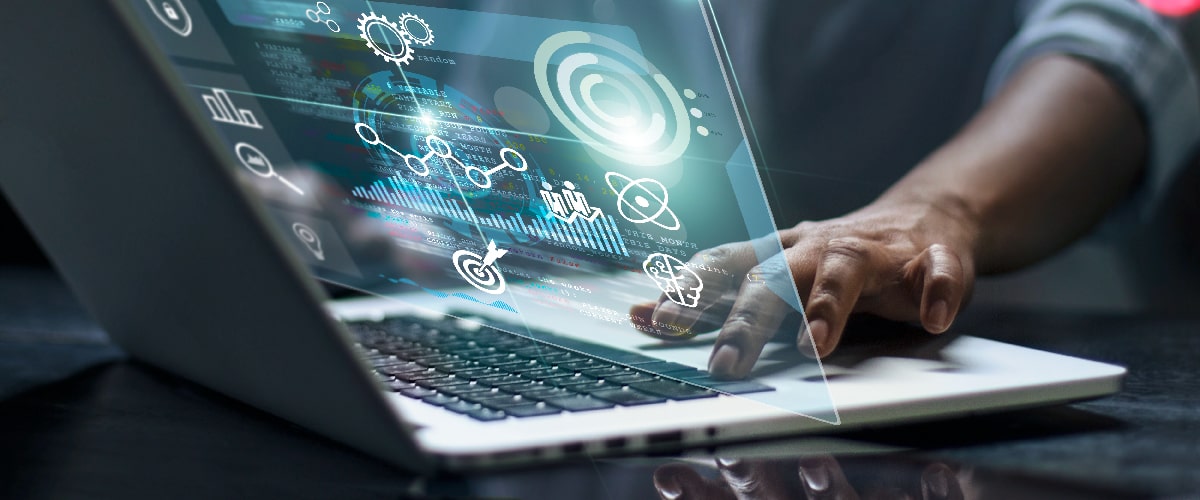 Web Content Viewer
Web Content Viewer
Advancements in ERP and Technology in 2021

Moving through 2021 amid COVID-19 vaccine rollouts and a continuation of remote work and schooling structures, the ever-evolving role of technology shapes how our society functions, from entertainment and shopping to education, healthcare, and employment. The rapid pace of technological advancement can be viewed perhaps as a driving force that we seek to adapt to rather than it adapting to us.
For IT professionals, keeping an eye on the constant shift in global events as well as monitoring the breath-taking progress of technological response is necessary, even if it requires alternating between learning and unlearning old and new, and at breakneck speed. The following includes ERP and technology advances to watch for and perhaps dive into more closely if you are looking to stay on top of your business continuity.
ERP in the cloud
According to Market Research Future, two reasons to consider the cloud are lower capital expenditures and a significant decrease in ongoing IT cost. A cloud-based ERP solution also eliminates the need for workers to go to a physical location to perform maintenance for on-premise equipment and enables them to work on other projects. This allows companies to repurpose IT resources from maintenance of systems to business growth and reduces workers’ risk of catching or spreading viruses now and in the future.
Artificial Intelligence
More data is being collected now than ever and the AI market is expected to grow to a $190 billion industry by 2025. Existing ERP data can be combined with outside unstructured data — like sales trends and weather patterns — to enable predictive analytics. AI can also aid in warehouse automation by improving speech recognition for voice picking technology and hands-free operations. Overall, AI has continued to play an important part in enhancing ERP systems and allowing customers to improve logistics, profits, and customer service.
Mobile and e-business
Face-to-face customer service is being replaced by mobile and e-business applications that enable customers to order materials through a web store, and employees to coordinate deliveries and oversee product distribution. These tools enable non-contact order and payment processes for workers and customers which is critical in times of non-contact requirements. Mobile applications include photo capture for example, enabling a vendor to take a photo of a delivered purchase and then send to the recipient via text or email – enabling proof of delivery and avoiding damage claims and disputes, all of which could keep consumers and employees safe while potentially saving the company money and improve the bottom-line.
Internet of Things (IoT)
IoT encompasses everything that is connected to the internet and relates to how objects talk to each other, such as with smartphones, wearable devices, sensors embedded in various locations outside of the business, and smart home products including lightbulbs, switches, and motion sensors that are connected through wireless or existing cellular or future 5G. Forecasts suggest that by 2030 around 50 billion of these IoT devices will be in use around the world, creating a massive web of interconnected devices. For businesses this IoT data can be collected and stored within an ERP system.
Cybersecurity
Cybersecurity continues to evolve even as technology does and is more important than ever. New threats are a constant risk, which IT must constantly monitor. Keeping data safe and secure remains a top priority for businesses especially in the era of widescale remote work. According to Security Magazine, the FBI has seen a fourfold increase in cybersecurity activity since the beginning of the COVID-19 pandemic, whereas the global losses from cybercrime exceeded $1 trillion in 2020. The risk of data breaches and cyberattacks will always loom, so upping the security budget and keeping company and customer data safe is vital for long-term success and trust.
In conclusion, now is an extraordinary time when savvy IT and business professionals can explore technology and all it can offer. By doing so, it can pave the way for growth tomorrow.
Maggie Kelleher
Director of Business Development
Director of Business Development
Comments
By using this site you agree to our Privacy Policy and our Terms of Use.
Navigation
What We Offer
120 Comac Street
Ronkonkoma, NY 11779
Ronkonkoma, NY 11779
VAI - Vormittag Associates, Inc. ©2024 |
Privacy Policy |
Terms Of Use